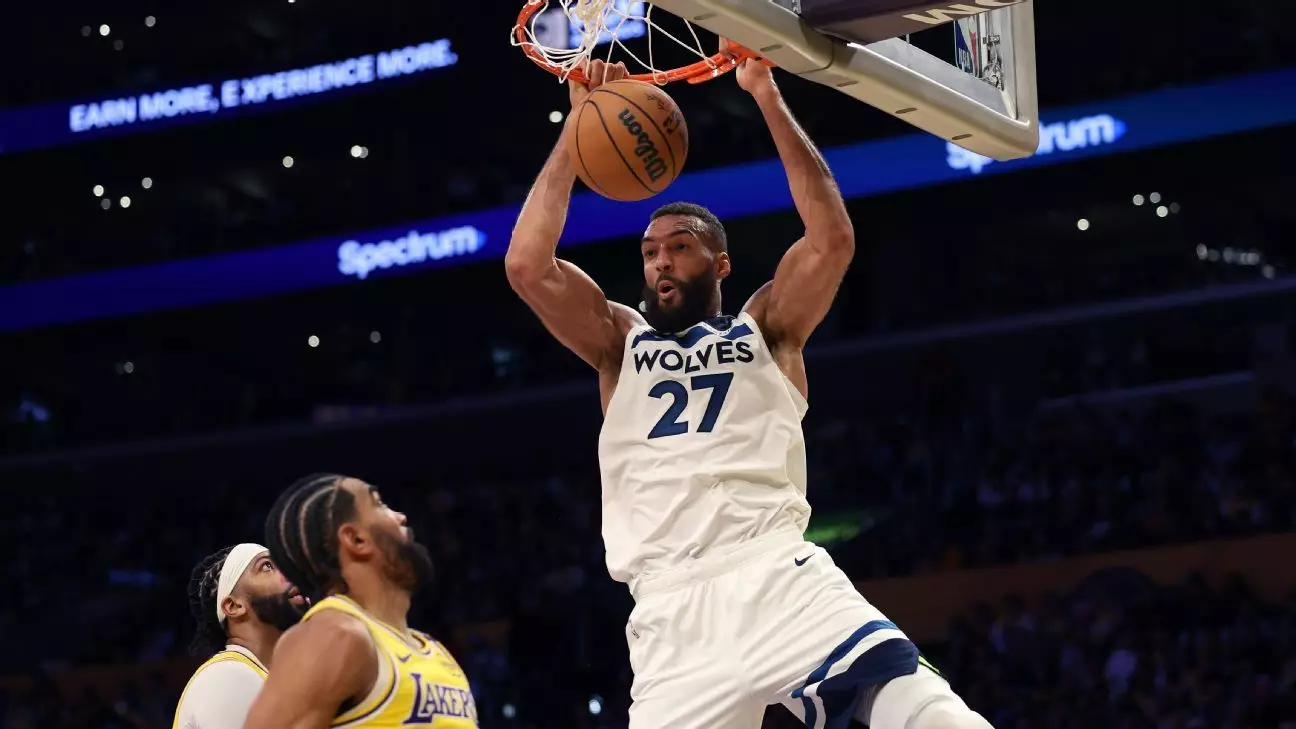The Minnesota Timberwolves have recently made headlines by securing a significant contract extension with their star center, Rudy Gobert. This decision signals not only the franchise’s commitment to developing a competitive team but also Gobert’s dedication to the organization that brought him from the Utah Jazz. In a landscape where players often seek maximum individual gain, Gobert’s recent contract negotiations reflect a refreshing balance of personal ambition and team loyalty.
As reported, Gobert has inked a three-year, $110 million extension, a deal that cements his position as one of the highest-paid players in the league. Gobert’s decision to decline a substantial player option for the 2025-26 season illustrates a nuanced understanding of the team dynamics at play. Rather than prioritizing an immediate maximum salary, he chose to structure his contract in a way that ultimately benefits both himself and the Timberwolves. This reflects a maturing mindset that many athletes only develop later in their careers. By allowing the organization breathing room under the salary cap, Gobert exemplifies a collaborative approach—one where individual aspirations are still aligned with the franchise objectives.
Gobert’s comments about wanting to win a championship in Minnesota underscore a growing belief in the team’s potential. His decision to remain with the Timberwolves, a franchise that has historically struggled, speaks volumes about the culture being cultivated within the organization. Often, star players shun teams not known for their competitive pedigree; however, Gobert, at 32 years old and having amassed various accolades—including being a four-time Defensive Player of the Year—has embraced the challenge. His assertion that “every year… I try to leave a little bit for the team” indicates a thoughtful approach to his contributions and a desire to galvanize his teammates, fostering a sense of unity and purpose.
Negotiating a contract that includes a player option for one of the final years and a trade kicker adds another layer to the Timberwolves’ strategic planning. This flexibility can allow Minnesota to navigate future trades or free-agent acquisitions without being hamstrung by Gobert’s salary. Such elements could prove crucial as the organization works to build a roster capable of competing for championships. By tying Gobert to an extended deal while also considering team needs paves the way for more thoughtful decision-making in the front office.
Gobert’s reliable performance contributes heavily to the team’s defensive prowess, reflected in his statistics from last season, where he averaged 14.0 points, 12.9 rebounds, and 2.1 blocks per game. His contributions were pivotal in the Timberwolves achieving a 56-26 record and making a deep playoff run. A player of his caliber not only elevates on-court production but also sets a standard in the locker room, something that can inspire both new and existing players to raise their game.
In the age of rapid trades and athlete mobility, Gobert’s stability in Minnesota illustrates the potential for loyalty in professional sports, albeit selectively. His decision to extend his tenure with the Timberwolves can inspire other players to consider longer commitments to teams with promising futures. Moreover, Gobert’s financial decisions—balancing personal gain with the broader objectives of the franchise—could reshape the way future contracts are negotiated in the league.
Ultimately, Rudy Gobert’s contract extension is not merely a financial agreement; it’s a testament to a developing culture in Minnesota that emphasizes teamwork, collective ambition, and a pathway toward success. The Timberwolves are not just investing in a player but are nurturing a philosophy that could form the bedrock of a championship-contending team in the coming years. In an era where both players and teams often act in their immediate self-interest, Gobert’s actions serve as a reminder of the power of collaboration and long-term commitment in achieving greater goals.


Leave a Reply